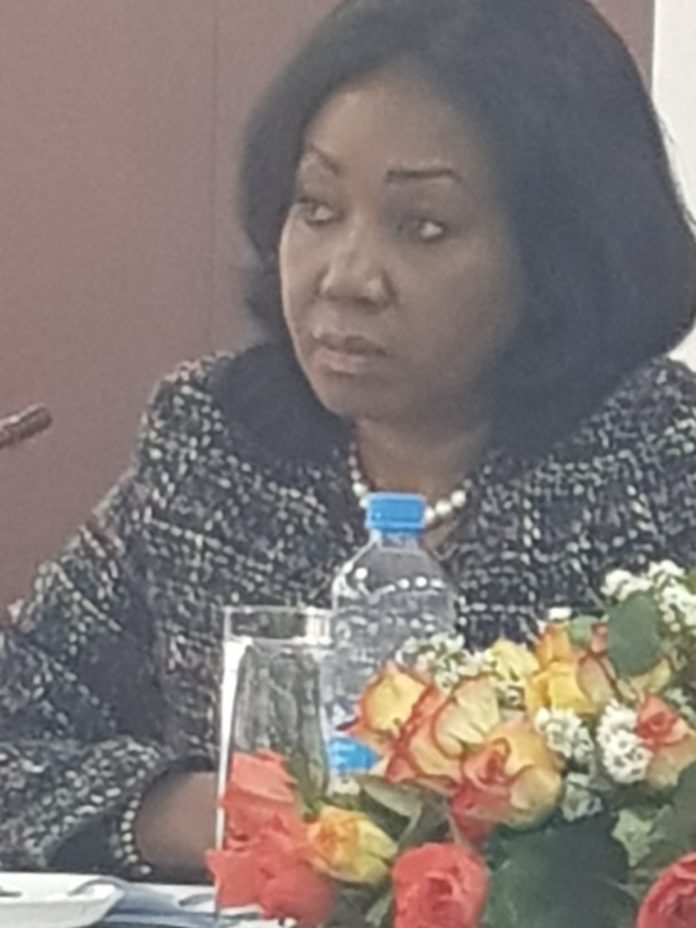Zambia’s cooperating partners want to be part of the agricultural revolution through smart, innovative and evidence-based investment planning to fight poverty and bolster the country’s aspiration to be the continent’s food basket and exporter.
Under the second National Agriculture Investment Plan (NAIP), Germany, Food and Agriculture Organisation, Alliance for a Green Revolution in Africa [AGRA] and the Agriculture Consultative Forum [ACF], note the country’s untapped potential and offer to rejuvenate the capacity as espoused by the Government.
Officiating in Tuesday, in Lusaka at the High Level Inter-Ministerial Dialogue Meeting on Agriculture Investment Plan (NAIP)/ Agriculture Support Programme (ASP) corporating partners representative, Suze Filippini affirmed donor’s investment commitment to become a net exporter of value added produce.
Ms. Filippini reaffirmed unwavering support, having noting Zambia’s resolve to reignite the failed 2014-18 NAIP, arguably to facilitate and support the development of a sustainable, dynamic, diversified and competitive agricultural sector, assuring food security at household and national levels and maximizes the sector’s contribution to GDP,
The sector’s performance has been dismal-far below its potential to promote food and nutrition security, creating jobs for women and youth, while failing to generate the much needed revenue through cross border trade-a call for action.
“It calls for smart, innovative and evidence-based investment planning for the agriculture sector, so as to enable it to contribute significantly to economic growth, poverty reduction, employment creation, and economic diversification.” Ms. Filippini, also FAO country representative, said.
Most value chain support presently focuses on one or two specific commodities, and fails to motivate agricultural diversification, especially among smallholder farmers. The formulation process of the second generation NAIP would necessitate a comprehensive redress of all shortcomings for effective beneficiation.
The technical and financial donor support towards developing NAIP was a tool for operationalization of the Presidential Vision of comprehensively transforming Zambia’s agriculture sector.
The agriculture investment and policy support programmes were envisaged to accelerate NAIP formulation and actualization but should be Government driven, evidence-based, sufficiently inclusive and participatory in nature.
The resultant investment plan remains a strategic and comprehensive document, envisioned to plug key gaps and needs in Zambia’s agriculture sector in Zambia amid the government’s quest to revolutionise.
And NAIP consultant, Alain Onibon urged the Government to mobilize local resources and invest in the sector while reducing bureaucracy.
There is a need for unwavering political will and the involvement of women and youth for wholesome participation through aggregated groupings for financial sector’s attraction for loans at affordable rates.
There is a need to interrogate the pitfalls in the previous NAIP, encourage mechanization of the sector and speed up the progression of the transformation process noting: We need political will, commitment by the Government, otherwise it will be a failed project,” Mr. Onibon said.
Zambia, like many African countries, must join hands to reverse the import bill for Africa on food and agriculture products-averaging US$600 million through production of value added goods for foreign markets after COVID 19 and other calamities decimated economies.
But agriculture minister Reuben Mtolo, reiterated Zambia’s resolve to change the face of the sector, driven by consistent policy formulation noting that the reputation as Africa’s largest producer and exporter of seed was evidence enough to ascertain the future of the country.
Zambia seeks to become the continent’s fastest agriculture-driven country in the next two years with plans to open a 1.2 metric ton per annum fertilizer production plant by 2023, best fresh fruit and crop value added goods grower and producer as evidenced by efforts underway since last year.
African Development Bank (AfDB), Akinwumi Adesina recently bemoaned Africa’s failure to exploit the local resources it is endowed with yet stakeholders were keen to join hands with continental leaders to ‘fast-track’ Africa’s economic potential through agriculture.
Its time the continent broke the food import chain and aims for self-sufficiency in food production within the shortest possible time.
AfDB estimates show Africa’s annual food import bill averages $35 billion, and is projected to rise to $110 billion by 2025, but weakens African economies, decimates its agriculture and exports jobs from the continent.
The former Nigerian Agriculture Minister laments the negative effects that huge food imports had on the continent amid plenty of human and natural resources yet it is faced with power deficit and poor rural areas with potential to bolster agricultural output.
‘‘To rapidly support Africa to diversify its economies, and revive its rural areas, we have prioritized agriculture. We are taking action. The Bank has committed $24 billion towards agriculture in the next 10 years, with a sharp focus on food self-sufficiency and agricultural industrialization,’‘









Isn’t green revolution a failed agenda despite huge investment? We need to be very careful as a country.
Comments are closed.